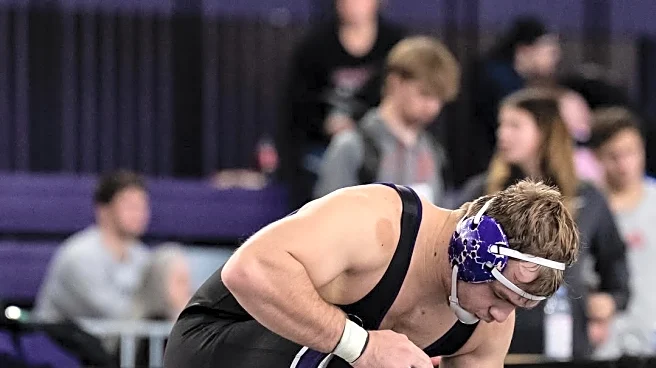What's Happening?
Emmanuel Emegha, a forward for Strasbourg, has been called up to the Netherlands national team for the upcoming 2026 World Cup qualifying matches. Emegha is stepping in as a replacement for the injured
Wout Weghorst, an Ajax veteran, who is unlikely to be fit for the match against Poland. The Netherlands, currently leading their group, needs only a draw in Warsaw to secure advancement to the World Cup, with a final qualifying game against Lithuania scheduled for Monday. Emegha's call-up comes ahead of his transfer to Chelsea, which was agreed upon in September, causing discontent among Strasbourg fans who are losing a key player to the parent club.
Why It's Important?
Emegha's inclusion in the Netherlands squad highlights the strategic moves within European football, particularly involving clubs owned by U.S.-backed holding companies like BlueCo. Strasbourg's role as a feeder club to Chelsea underscores the interconnected nature of modern football club ownership and player development. This call-up not only impacts the Netherlands' chances in the World Cup qualifiers but also affects the dynamics within Strasbourg and Chelsea, as player transfers and loans continue to shape team compositions and fan sentiments. The decision could influence the Netherlands' performance in crucial matches, potentially affecting their World Cup journey.
What's Next?
The Netherlands will face Poland in a decisive match, where a draw will secure their advancement to the World Cup. Emegha's performance could be pivotal in this outcome. Following the World Cup, Emegha will join Chelsea, a move that may impact both his career trajectory and Chelsea's squad dynamics. Strasbourg fans may continue to express dissatisfaction with losing a star player, potentially influencing the club's future transfer strategies. The broader implications for European football include ongoing discussions about the influence of holding companies on club operations and player movements.
Beyond the Headlines
Emegha's transfer and call-up reflect broader trends in football, where financial interests and strategic partnerships often dictate player careers and club strategies. The ethical considerations of feeder club arrangements and the impact on local fan bases are significant, as they challenge traditional club loyalty and community identity. This development may prompt further debate on the balance between commercial interests and the cultural heritage of football clubs.










